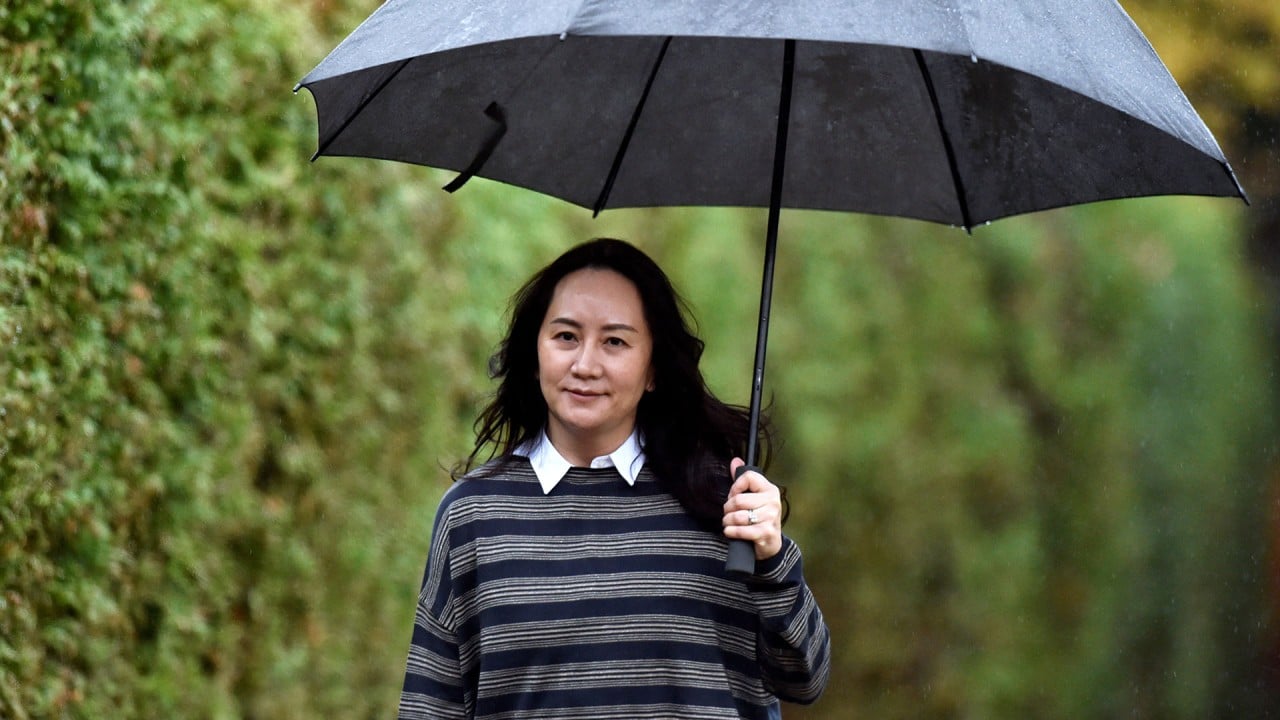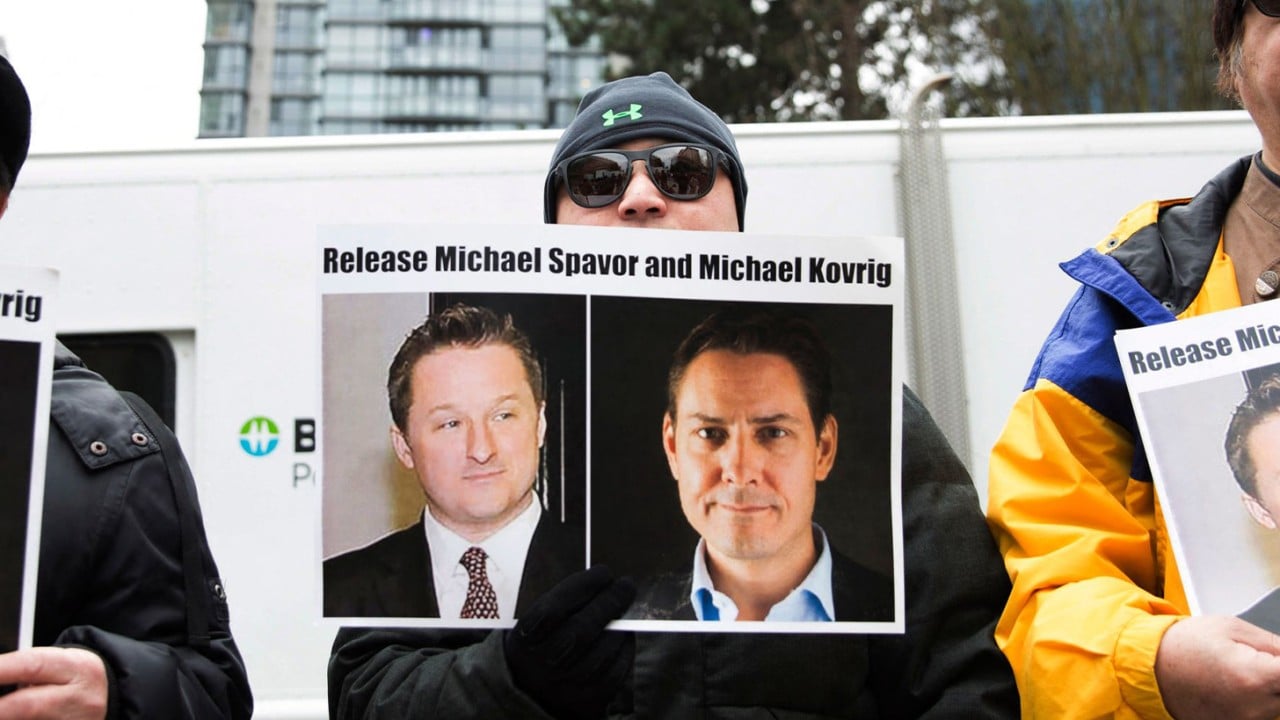
Extradition judge is told she, not minister, must decide if US has jurisdiction over Meng Wanzhou’s actions in Hong Kong
- The case against Meng showed the US had wrongfully engaged in a ‘power grab’ to regulate the conduct of Chinese nationals in Hong Kong, her lawyer said
- Whether the US had a right to prosecute Meng was a legal decision, not a political one, judge is told, and the US ‘doesn’t make law for China’
The United States was engaged in a “power grab” that breached international law by trying to regulate Meng Wanzhou’s conduct in Hong Kong, the Huawei Technologies executive’s lawyer told her extradition hearing on Tuesday.
Lawyer Gib van Ert said the judge presiding over the case, and not Canada’s justice minister, must decide whether the US had jurisdiction to bring its fraud case against Meng.
“It’s not a matter that you may leave to someone else. It is a legal determination. It is a question you must answer,” lawyer Gib van Ert told Associate Chief Justice Heather Holmes in the Supreme Court of British Columbia, as he pressed the case that the US has no right to prosecute Meng under international law, and Holmes must therefore throw out the bid for her extradition to New York.
The case showed that the US had wrongfully “given itself the power to regulate the conduct of Chinese nationals in Hong Kong”, van Ert said.

Meng is accused by the US of defrauding HSBC by lying to one of its bankers in a 2013 meeting about Huawei’s business dealings in Iran, thus putting the bank at risk of breaching US sanctions. But the US has no right to prosecute Meng’s conduct, van Ert had said on Monday, because Meng is Chinese, HSBC is British and the meeting took place in a Hong Kong teahouse.
US prosecutors have claimed jurisdiction because the fund transfers that allegedly resulted from Meng’s representations were cleared through US banks; her lawyers said in a written submission that this was a “wholly insufficient and artificial” connection.
Jurisdiction is about where states get to exercise their power … And the United States is saying ‘we get to exercise it in Hong Kong’
Canadian government lawyers acting for US interests in the extradition case say jurisdiction is a matter to be considered mainly at trial, and by Canada’s justice minister, who ultimately will decide whether to allow Meng’s extradition, should Holmes approve it.
On Tuesday, Holmes echoed that position, asking van Ert “isn’t it then more appropriate in an extradition context for the minister to be making the decision” about whether the US had “overstepped”.
‘US laws do not apply in China’: new front opens in Meng extradition fight
Van Ert said this was “a legal question and not a political determination”, and if the court condoned the US request, Canada too would be in breach of customary international law.
While legislatures might act in ways that breached international law, Canada’s judges must not, said van Ert. “If international law is to be violated that is to be left to politicians, not courts,” he said.
He said the US had conducted a “plain power grab” by claiming jurisdiction over Meng’s conduct. “Jurisdiction is about where states get to exercise their power,” van Ert said. “And the United States is saying ‘we get to exercise it in Hong Kong, at least in circumstances where a financial transaction between a Chinese company and a British bank took place in some way that we say is connected to that’.
“If that is right it is a fundamental shift in how jurisdiction is understood in international law.”

04:43
How the arrest of Huawei CFO Meng Wanzhou soured China's relations with the US and Canada
If US law applied to a Chinese national in Hong Kong “that is an interference with the sovereignty of Hong Kong and China”, he said.
“Ms Meng would have expected that her conduct in Hong Kong is governed by the law of Hong Kong. States around the world would have that same expectation,” van Ert said.
Chaos and confusion would result if states routinely applied their laws to activities taking place elsewhere, van Ert said, and it was “self-evident” that the “United States makes law for the United States. It doesn’t make law for China. That’s the territoriality principle.”
The US assertion of jurisdiction relied upon the process of dollar clearing, said van Ert, in which transfers between accounts in two non-US banks, but denominated in US dollars, may pass through their respective correspondent US banks.
The US accusations against Meng cite transfers between Huawei affiliate Skycom and a British company called Networkers.
Van Ert referred to an expert witness report by Regis Bismuth, a French law professor, who said that international monetary law principles “do not allow states to use their currency as a basis of jurisdiction”, even if a payment was reflected in their currency clearing system.
Meng’s case involved US$2million in payments through the US dollar clearing system over 13 months, compared to US$4.5 trillion that went through the system daily, van Ert said, citing another expert report by US banking expert John Simonson. “The actual impact as a percentage [is] very nearly zero,” van Ert said, and was no basis for US jurisdiction.
Ms Meng would have expected that her conduct in Hong Kong is governed by the law of Hong Kong. States around the world would have that same expectation
Meng, Huawei’s chief financial officer and the eldest daughter of the company’s founder Ren Zhengfei, was arrested at the request of US authorities at Vancouver’s airport on December 1, 2018, on a stopover from Hong Kong. She has been fighting extradition ever since, in a case that has thrown China’s relations with the US and Canada into turmoil.
The jurisdictional argument is one of four branches of Meng’s case that she is the victim of an “egregious” abuse of process that has violated her Canadian charter rights.
Meng’s Vancouver mansions are not owned in her name, extradition case hears
The other branches are that her case is a tainted political prosecution brought as leverage in a US trade war with China, that Canadian police and border guards conducted a covert criminal investigation of her to obtain evidence for the US Federal Bureau of Investigation, and that American authorities misled the Canadian court in their summaries of the case.
A separate argument, that the case failed to pass the “double criminality” test – that extradition cases must involve actions that would have represented crimes had they occurred in Canada – has already been rejected by Holmes.
Van Ert told Holmes on Tuesday that she found herself in an “unusual and unprecedented situation”; never before had there been a Canadian extradition case in which the request itself was contrary to international law, he asserted.

02:11
Second Canadian, Michael Kovrig, on trial behind closed doors in China on spying charges
If the court decided to pass on the decision about jurisdiction to the minister or ruled that the request was unlawful but did not impose a remedy, then it was “unlikely to result in the minister solving the problem … the minister will take the same view [as the court]”, van Ert suggested.
Meng’s long-running extradition battle may be nearing its final stages, with hearings due to be completed on May 14, after which Holmes must decide whether to free her or approve extradition. But the final say will rest with the justice minister, and appeals could drag out the process for years.
Meng’s treatment has enraged Beijing, which has repeatedly demanded her release. Two Canadians, Michael Kovrig and Michael Spavor, were arrested in China soon after Meng’s arrest, and this month both men were put on trial for espionage. The closed-door trials only lasted hours; no verdicts have been announced.
Canada’s government regards both men as victims of “hostage diplomacy” and arbitrary detention by China.

